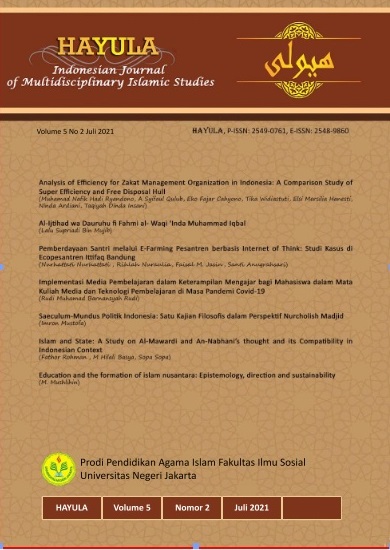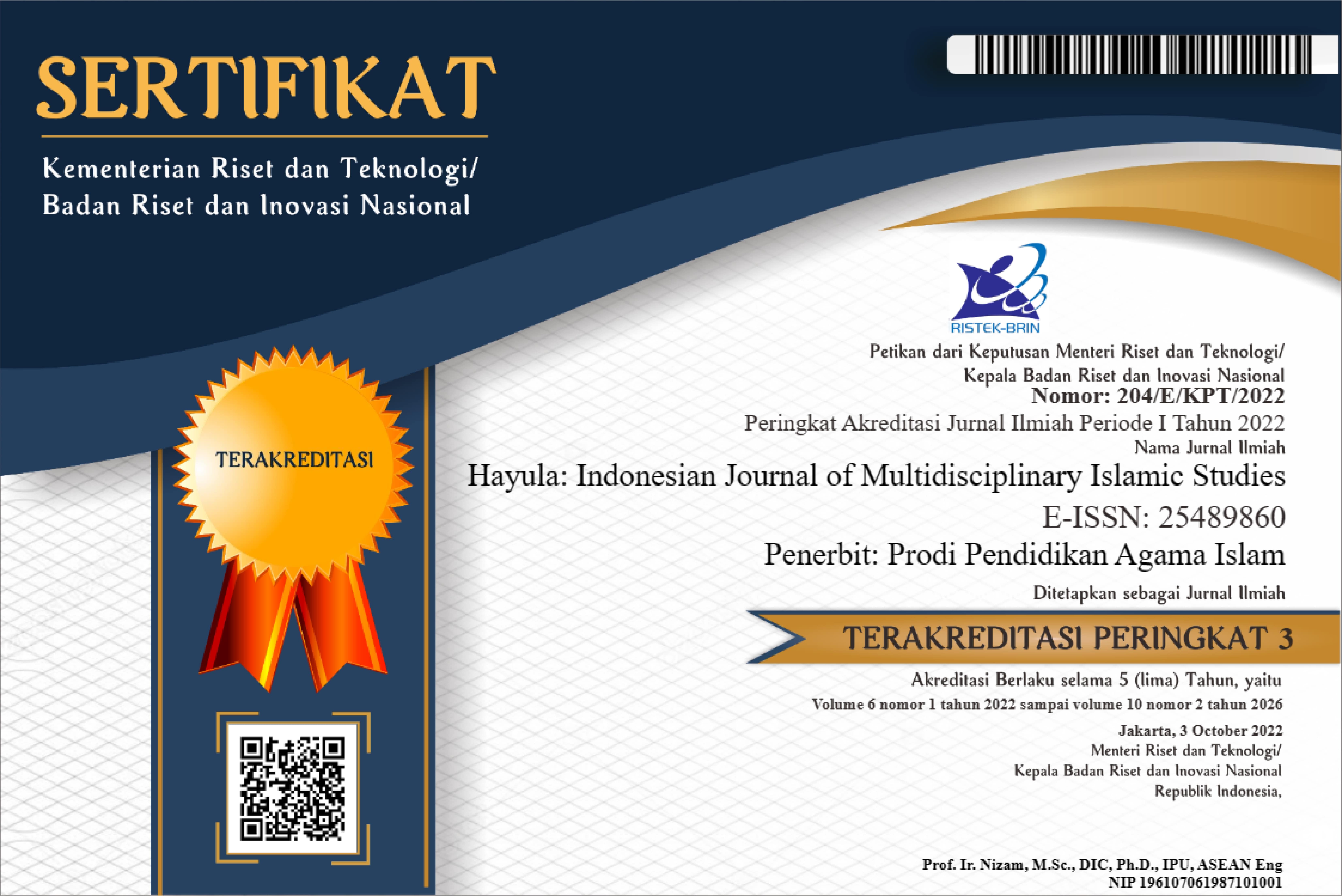Education and the formation of Islam Nusantara: Epistemology, Direction and Sustainability
Abstract
This paper examines the educational roles of UNUSIA (Indonesian Nahdlatul Ulama University) Jakarta in shaping and developing a highly debated term of Islam Nusantara (IN), which apparently remains in the process of becoming. In particular, this study attempts to understand the questions of how and to what extant UNUSIA through its Faculty of Islam Nusantara (FIN) tries to construct the historical facts of Indonesian Islam as what the so-called IN; to what direction the university makes some developments for the future of IN; and at last how it forms IN in sustainable existence. Through some observations of curriculum and learning programs of IN and in-depth interviews, this study analytically explores the anthropological, sociological and philological histories of Indonesian Islam conducted to formulate the moderate face of IN; it looks into the use of wider multidisciplinary studies for a new future direction of IN; and furthermore it studies some academic activities launched to sustain the state of IN nationally and globally. This study demonstrates that the FIN of UNUSIA, through its departments of Islamic Culture History and Islamic Civilization History, applies mainly the historical approaches to scrutinize and form the relationship between Islam and Indonesian culture as the main foundation of IN. Recent development shows that nationalism is as well placed as a crucial part of IN. For future development, IN is directed to deal with humanitarian issues like climate change, poverty, minority, disability, lands conflict, philanthropy, etc., and therefore it inevitably searches for wider multidisciplinary approaches. Lastly, broader research and worldwide academic cooperation conducted is to sustain IN leading to be the center of Islamic civilization in the globe.
Downloads
Published
How to Cite
Issue
Section
License
Authors who publish with this Journal agree to the following terms:
- Author retain copyright and grant the journal right of first publication with the work simultaneously licensed under a creative commons attribution licensethat allow others to share the work within an acknowledgement of the work’s authorship and initial publication of this journal.
- Authors are able to enter into separate, additional contractual arrangementfor the non-exclusive distribution of the journal’s published version of the work (e.g. acknowledgement of its initial publication in this journal).
- Authors are permitted and encouraged to post their work online(e.g. in institutional repositories or on their websites) prior to and during the submission process, as it can lead to productive exchanges, as well as earlier and greater citation of published works.
Users/public use of this website will be licensed to CC BY







